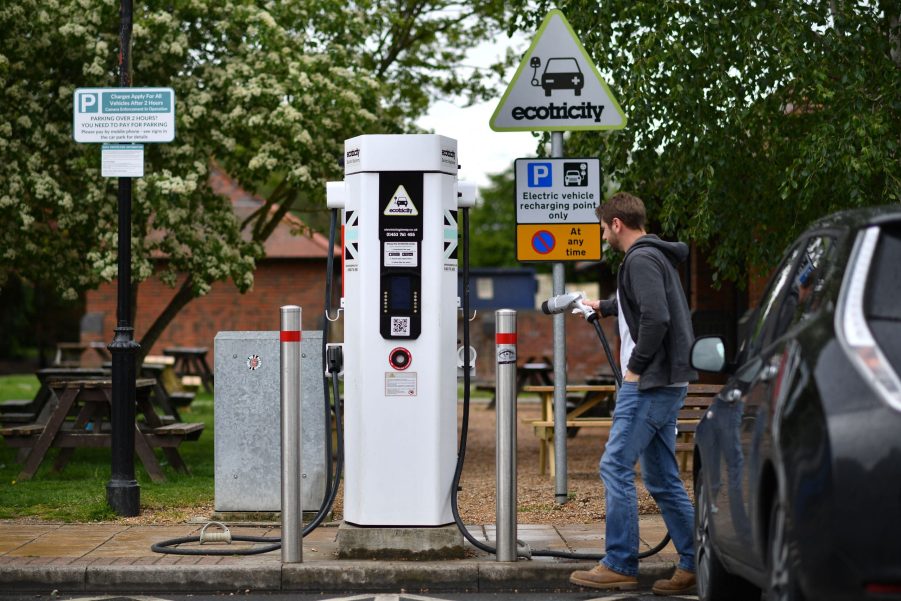
Where Do Charging Stations Get Their Power?
With electric cars and renewable energy rising, more EV charging stations are popping up across America. Tesla’s Superchargers, Volkswagen’s Electrify America initiative, and other independent companies scattered around. But the electricity that charges your car doesn’t magically manifest itself. And while EVs are clean, their power source might not be.
The most common charging station power source

We’ll rip the band-aid off now: natural gas is the most common charging station power source. It’s cheap, abundant, and accessible. But not all electricity is generated by fossil fuels alone, as charging stations are connected to “the grid.”
Your house is connected to the grid. And if you own a home charging station, it’s connected to the grid. It’s America’s power supply divvied out among your community, with 40% of that power generated by natural gas and 19% by coal.
So, while the electric car has zero emissions, the energy it gets isn’t. However, that doesn’t mean charging stations don’t use other clean fuels. There are a lot of charging stations in a lot of places, which means a lot can change from station to station.
The cleanest charging station power source

You may go to a charging station and find a solar panel placed on top. Typically, those solar panels offset the grid power needed by a fraction. Solar energy only makes up 2% of the energy used by the grid. Most of the grid’s renewable energy comes from wind (8%) and hydro (7%).
Which leaves the last 20% of grid power: nuclear. While controversial, nuclear is a zero-emissions power source. By no means does that make it the cleanest, but it’s cleaner than coal/natural gas.
As the U.S. Energy Information Administration explains, the grid uses all sorts of power to generate electricity. However, stations may utilize other energy sources depending on their location. Charging stations in Las Vegas and other parts of Nevada use more hydroelectric energy due to the Hoover Dam. Meanwhile, stations in California utilize the vast wind farms and solar grids established there.
That said, the vast majority of charging stations rely on some natural gases, which begs the question:
Are electric cars clean?

Does the good outweigh the bad if you include energy generated by charging stations,? In short, electric cars are cleaner but certainly not perfect. Bits and pieces of their power come from solar, wind, hydro, and nuclear. Gas-powered vehicles, however, rely entirely on gas. A double whammy of turning crude oil into petroleum and then puffing emissions out the tailpipe.
Some charging station companies like EVgo have committed to 100% renewable networks. It’s a necessary transition that will make EVs truly zero emissions. Others are just working to grow the network at whatever rate is possible.
But until the grid goes 100% renewable, eliminating our reliance on gas and coal power, the planet will burn no matter what you drive. Electric cars offset the damage, and sustainable stations are on the way, but there’s still work to achieve a clean, green tomorrow.


